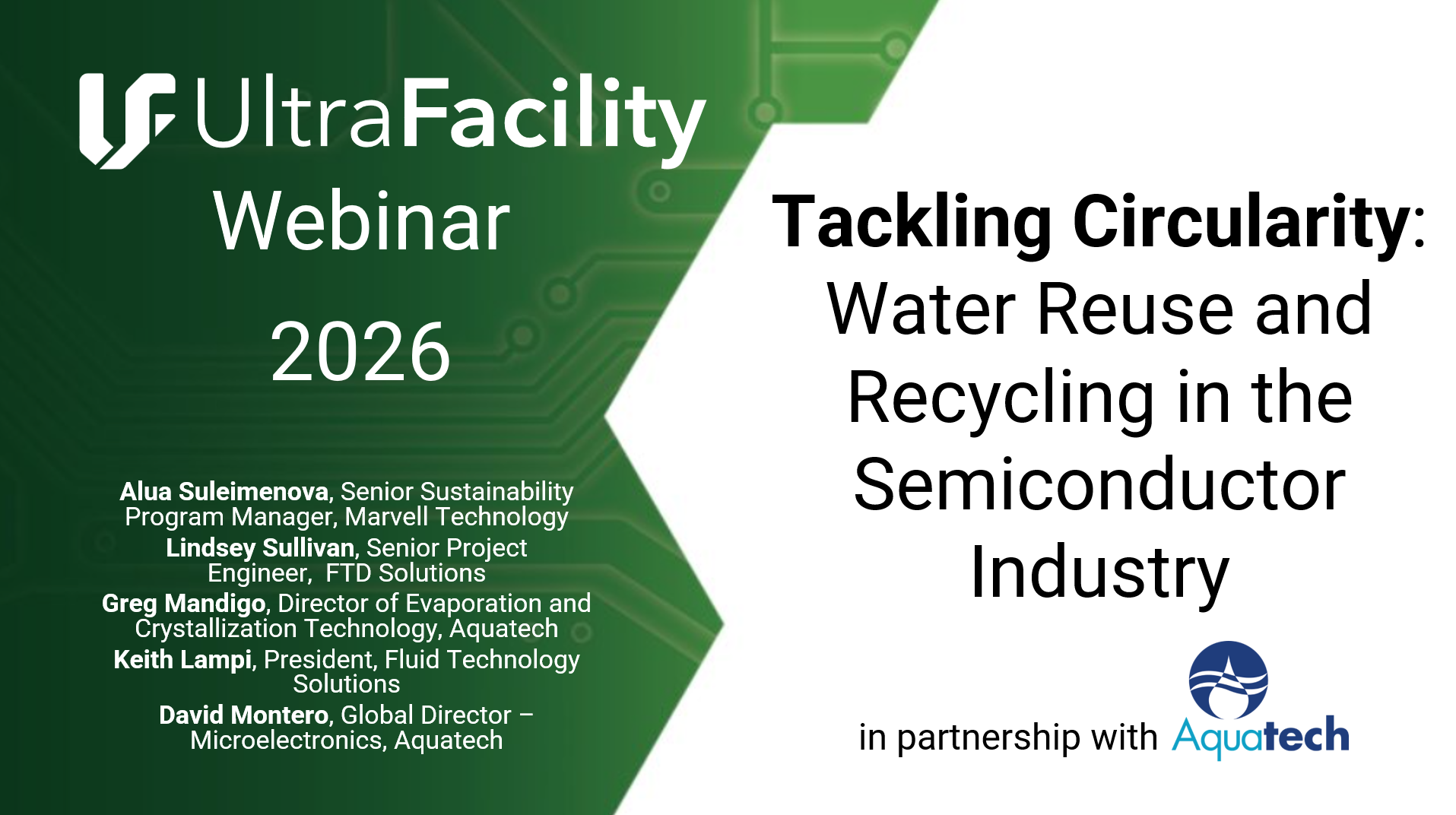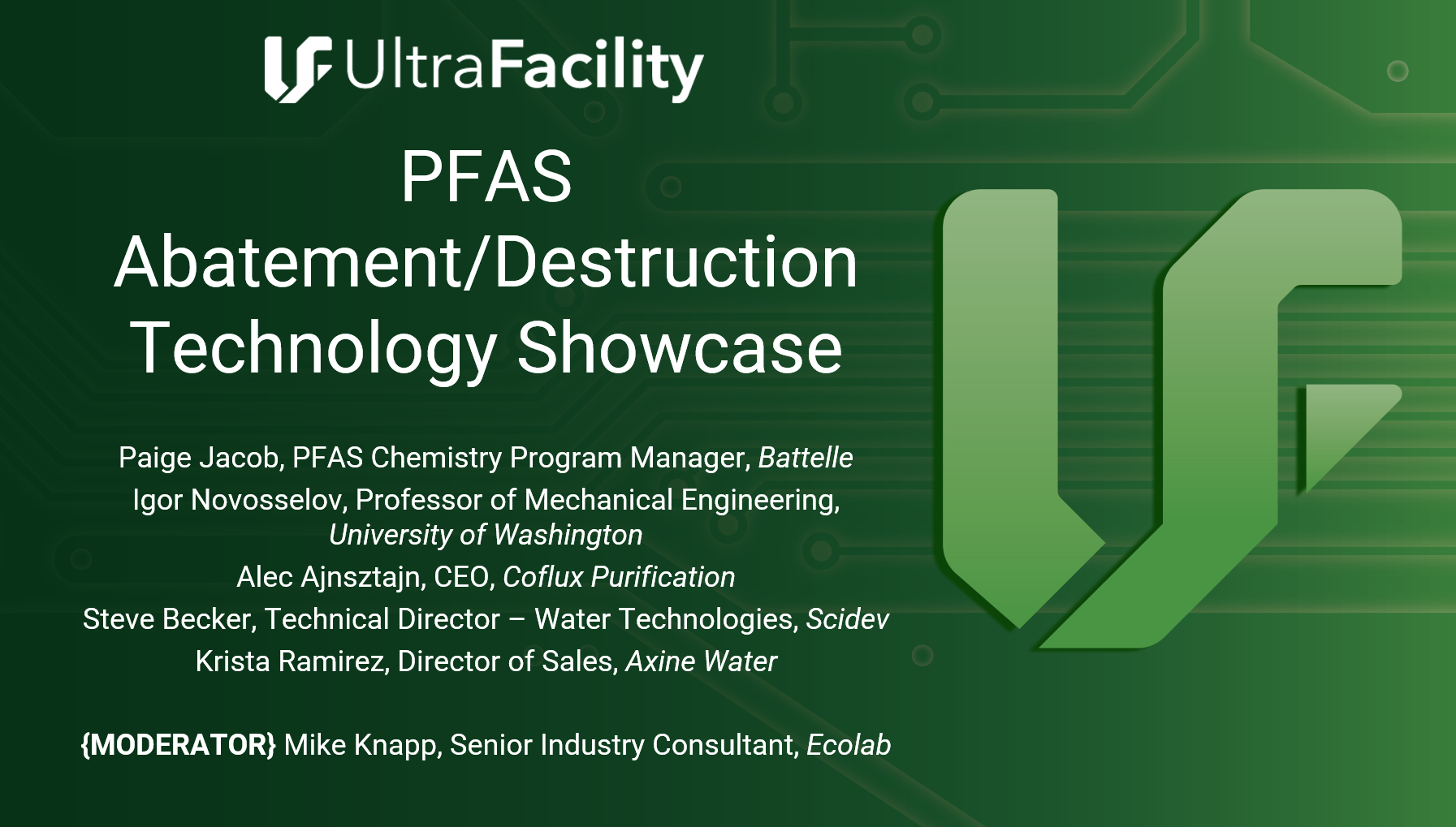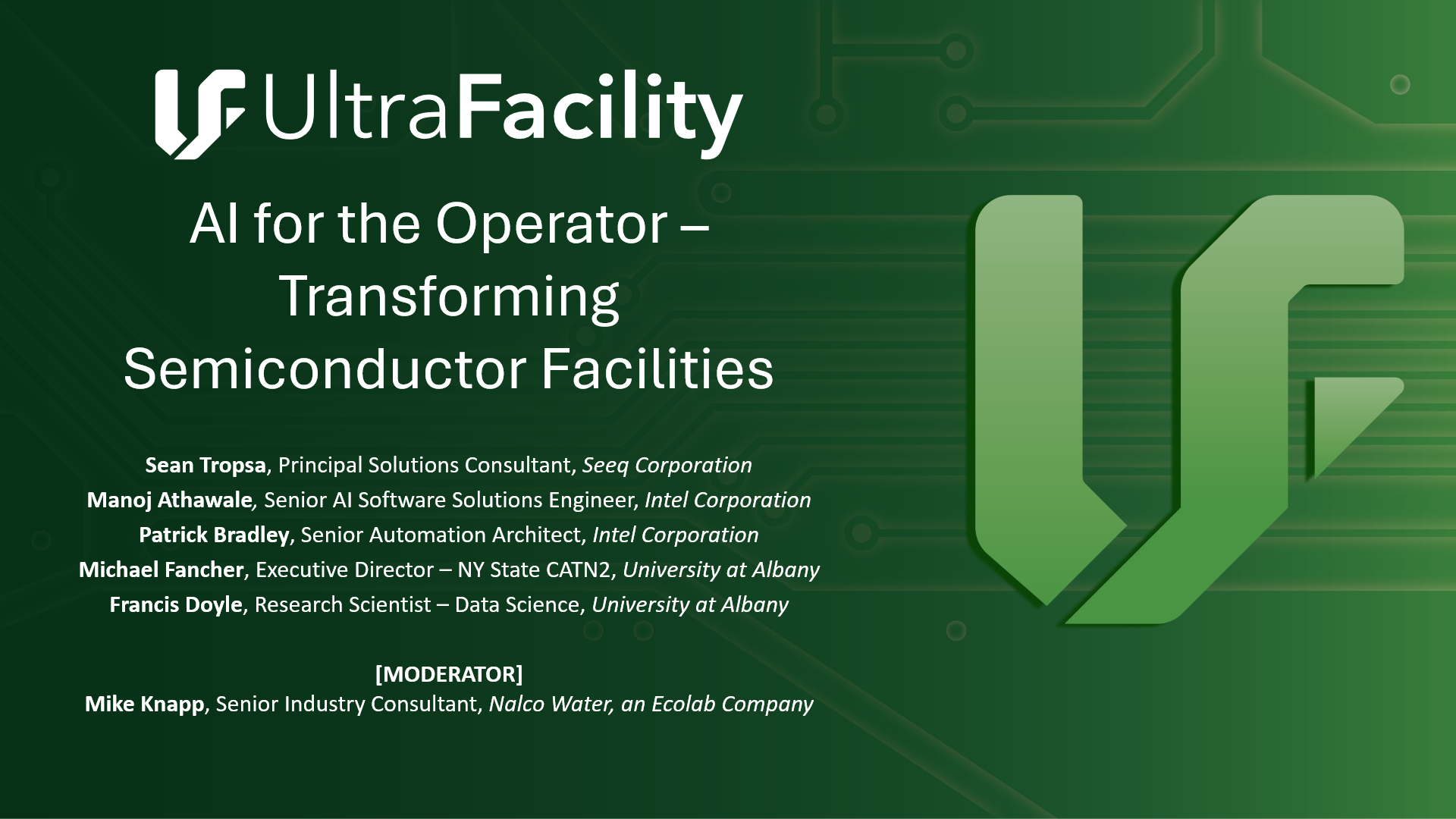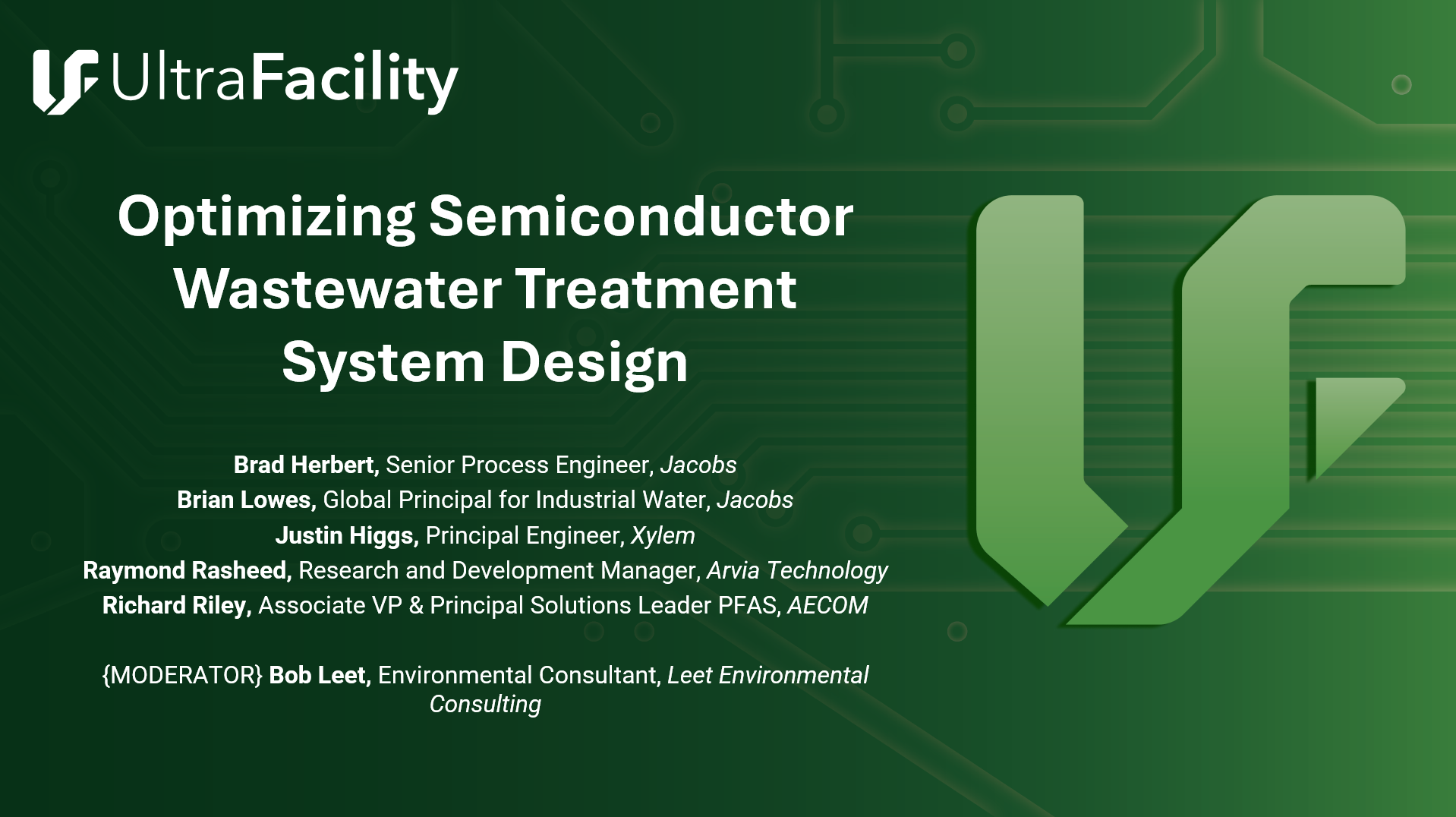Optimizing Semiconductor Wastewater System Design
Wednesday, September 24th 2025
Free Online Webinar
As semiconductor fabs face mounting pressure to reduce water consumption, adhere to ever-stricter discharge limits, and manage complex contaminants, the question of how to treat wastewater isn’t just about cost or efficiency. It’s about environmental credibility, operational resilience, and long-term sustainability.
So what's the best way for fabs to reduce waste, reuse resources, and recover value without compromising performance?
In our upcoming webinar, part of our Future-Proofing Facilities series, we’ll be taking a closer look at the key design trade-offs facing fabs today.
We’ll explore how centralized and decentralized treatment systems compare in terms of efficiency, cost, footprint, and flexibility - and when it might make sense to retrofit. Underpinning this discussion, we will be diving into key contaminants like ammonia and azoles, and how treatment and removal of these contaminants fits into treatment systems
You’ll come away with a clearer understanding of which systems work best, how the systems are evolving, and what fabs - and their suppliers - need to plan for next.
Register now to be part of the conversation.
Share this webinar
Speakers
Bob Leet
MODERATOR
Leet Environmental Consulting
Bob is an environmental and supply chain consultant, and formerly a Senior Technologist at Intel Corporation, with a demonstrated history of working within the semiconductor and electronics industries to drive fundamental sustainability improvements. He is skilled in Sustainability, ESH Research, Environmental Awareness, EHS Management Systems, Green Chemistry, Corporate Social Responsibility, Regulatory Evaluation, Nanomaterials, and Root Cause Analysis. He has a Master of Science (M.Sc.) in Chemical Engineering - focused on Semiconductor Processing and Manufacturing, from Arizona State University, holder of seven patents in semiconductor process technology and waste management systems, author of three publications regarding Conflict Minerals, Semiconductor EHS Strategy, and Photocatalytic Oxidation of TCE, and presenter of many invited industry talks on Responsible/Conflict Minerals, EHS topics, and Corporate Social Responsibility.
Richard Riley
Associate Vice President
AECOM
Rich is a principal solutions lead specializing in Per- and Polyfluoroalkyl Substances (PFAS), bringing over 30 years of industry experience. He has deep expertise in semiconductor facility operations and manufacturing, with a focus on mechanical systems, ultra-pure water, environmental air abatement technologies, and wastewater treatment. Rich has led high-impact programs that support advanced manufacturing and sustainability, including key initiatives in PFAS characterization and abatement. Recognized for building and leading high-performing teams, Rich blends technical depth with strategic execution and a strong commitment to continuous improvement. Throughout his career, he has consistently delivered results that align operational excellence with environmental stewardship.
Justin Higgs
Principal Engineer
Xylem
Justin Higgs is a Principal Engineer overseeing process and technology development at the Xylem + Evoqua Sustainability & Innovation Hub in Pittsburgh, PA. His primary focus encompasses utilizing physicochemical and membrane separation techniques to recover resources from manufacturing wastewater. Mr. Higgs has been with Xylem + Evoqua since 2012 when he pioneered the application of nanofiltration and reverse osmosis to wastewater in the phosphate industry. His technical contributions have been widely adopted, treating over 2.7 billion gallons of RCRA classified phosphogypsum wastewater annually. His most recent work on ammonia recovery from microelectronics wastewater is pending a US patent and was submitted to the American Chemical Society for publication in Environmental Science and Technology. Justin holds a Bachelor of Science in Mechanical Engineering from the University of Evansville, a Master of Science in Environmental Engineering from the University of California Riverside and is pursuing a Doctorate in Engineering from Pennsylvania State University.
FAQ
Everything you need to know about UltraFacility portal events and webinars. Can’t find an answer? Chat to our team.
- How do I register for a webinar?
To register and attend an upcoming webinar, you must first log in to your UltraFacility account. Once logged in, you may be required to enter further details about yourself in order to attend the event.
If you have forgotten your password to your UltraFacility account, you can reset it here.- Why can I not register and attend a webinar?
You may not be able to register for one of our webinars because you have reached the maximum number of free events allowed. To attend more of our events, please consider an UltraFacility membership.
You may have registered for a webinar with two email accounts, one personal and one work, which you are not allowed to do. Please only use your work email address. If you believe this may be the case, please contact us
If you believe that there is an error with your access, please contact harry.palmer@globalwaterintel.com
- What happens if I cannot make the live webinar?
Can't make it? We understand people's schedules can change. As long as you have an active UltraFacility Portal subscription, you will get access to the webinar recording on the Technical Knowledge Base.



